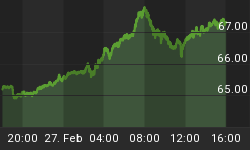
Special Guest: Chris Casey is Managing Director of WindRock Wealth Management. Combining a degree in economics from the University of Illinois with a specialin the Austrian school of economics, Mr. Casey advises clients on theinvestment portfolios in today's world of significant economic and financiintervention. Mr. Casey has served as a trusted advisor to a diverse range of business owners, advising them on financial issues impacting their companies and thepersonal wealth. Throughout his career as a Director with the national financiservices firm Stout Risius Ross, he advised business owners from a variety industries on the risk and return profile of their equity interests. In addition, MCasey advised high net worth individuals and families related to their financialtax and estate planning. At his previous firm, he was also in charge marketing Private Client Services on a nationwide basi Mr. Casey has been a frequent speaker before a number of organizations anconferences, including USA Watchdog, GoldMoney, Freedom Fest, anvarious bar associations and radio shows, including weekly financial aneconomic commentary on The Edge of Liberty (WNJC 1360, Philadelphia). Hwritings have appeared in a variety of publications and websites including TheLudwig von Mises Institute, Zero Hedge, Family Business, Casey Research,and Laissez Faire Books. He is a board member of the EconomicsDevelopment Council with the University of Illinois, a Policy Advisor for ThHeartland Institute's Center on Finance, Insurance, and Real Estate, and Chartered Financial Analyst charterholder (CFA®). He enjoys cycling, cookingreading, writing, and spending time with his children. Mr. Casey resides Elmhurst, Illinois.
A 33 Minute PODCAST
CHRIS CASEY DISCUSSES TYPES OF FINANCIAL REPRESSION, THE MYTH OF MONETARY VELOCITY, AND WHAT IT MEANS FOR INVESTORS.
FRA's Gordon T. Long interviewed Chris Casey of Windrock Wealth Management on the monetary policy aspects of financial repression. Mr. Casey, an Austrian economist, is a frequent speaker and writer on macroeconomic topics and their related investment implications.
Types of Financial Repression
"Financial repression can best be described as government intervention in the financial markets which causes distortions not only within financial markets, but throughout the economy."
According to Mr. Casey, financial repression can take direct and indirect forms. The most damaging form of indirect financial repression is the expansion of the money supply decreases interest rates. The artificially lowered interest rate structure causes widespread malinvestment within an economy.
All of this would perhaps be tolerable if monetary policy actually stimulated the economy, but Mr. Casey states that even Federal Reserve economists have recognized the ineffectiveness of the multiple quantitative easing programs.
The Myth of Monetary Velocity
Mainstream economists believe inflation is currently mitigated by today's historically low monetary velocity ("the number of times one dollar is spent to buy goods and services per unit of time"), so the money supply can be expanded without the damaging effects of inflation. Chris Casey takes issue with this as well as the very concept of velocity.
"Velocity has no impact whatsoever, in fact it is a meaningless statistic."
Worse, the theoretical construct from which the concept of velocity derives, the Fisher Equation of Exchange, is equally faulty. This equation attempts to explain the price level within an economy, but while it includes the supply of money, it ignores the demand for money which renders it useless. A useless theory in the wrong hands can create disastrous policy:
"The real danger is that by looking at velocity, by being focused on velocity, mainstream economists have been focusing on a false measure which creates false decisions which is going to have a very real impact on investors."
What Should Investors Do?
Where may the faulty policy decisions lead the U.S. economy? Chris Casey believes that "the endgame eventually will be a massive inflationary recession." Gordon T. Long then asked Mr. Casey:
"What could you suggest to our listeners that they should be doing or thinking about to protect themselves in this environment?"
After recommending investors consider becoming fairly liquid, Chris Casey addressed how to profit from the coming economic environment:
"Build a portfolio of hard assets. You want to look at anything from precious metals to certain types of real estate such as rental residential real estate to farmland. You potentially want to look at foreign currencies to diversify from the U.S. dollar despite the dollar's strength over the last year."















